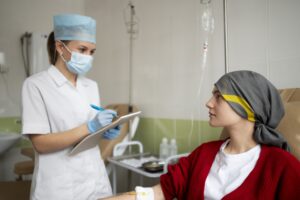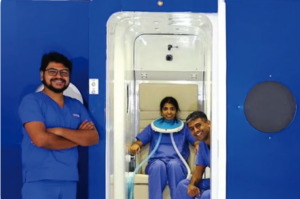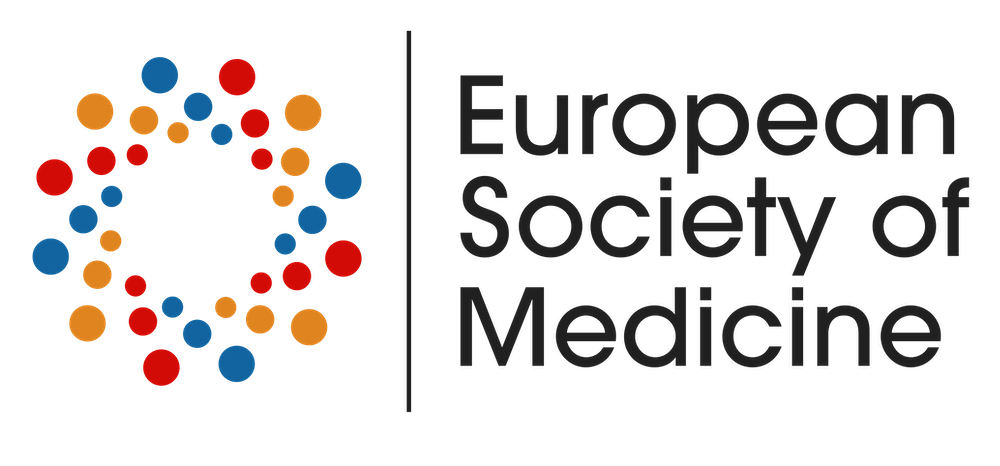H1 Tag: As Title
Introduction: As Meta Description
Form
Precision Oncology & Holistic Approach to Lung Cancer Treatment at Art of Healing Cancer
At Art of Healing Cancer, the fusion of Precision Oncology, modern medicine, and traditional healing practices forms the cornerstone of our patient-centered treatment philosophy. Recognizing the uniqueness of each individual’s battle with cancer, we integrate cutting-edge genomic sequencing and the latest medical advancements to tailor treatment plans that are as unique as the patients themselves. Simultaneously, we embrace the wisdom of traditional medicine, acknowledging its role in nurturing the whole person – body, mind, and spirit. This holistic approach not only targets the cancer cells but also supports the overall well-being of our patients, helping them to maintain a better quality of life throughout their treatment journey. By blending these diverse modalities, Art of Healing Cancer offers a compassionate, comprehensive care plan that addresses the multifaceted challenges of cancer, ensuring that each patient receives the most effective, personalized therapy.
Lung cancer Treatment in ____________________________
Please share your contact details for our teams to connect and guide you through your treatment plans:
Form
Why Choose Art of Healing Cancer

Blending traditional and modern treatments, we offer a holistic approach to cancer care.
Through chemosensitivity planning, we customize chemotherapy to each patient’s unique needs.
Precision and improved outcomes are hallmarks of our state-of-the-art robotic surgery techniques.
Utilizing genomic and transcriptomic data analysis, we provide the most advanced targeted therapy options.
As the only institution in India combining genomic and transcriptomic data with natural and herbal treatments, we offer comprehensive care.
We offer the most advanced immunotherapy treatments, including tailored vaccines and sensitivity testing to immunotherapy drugs.
One of the only centres trained on exploiting tumor Metabolism
Our Expert Cancer Care Team
At Art of Healing Cancer, we pride ourselves on having a team of highly skilled and compassionate experts in cancer treatment. Our specialists, drawn from diverse fields of oncology, integrate the latest advancements in modern medicine with traditional healing practices. This unique blend ensures that each patient receives a holistic treatment plan, tailored to their specific needs. Our team includes renowned oncologists, experienced surgeons, dedicated nurses, and supportive care professionals who work together to provide comprehensive care.

DR. MANDEEP SINGH MALHOTRA
- Surgical and Molecular Oncologist is the Chief Mentor at Art of Healing Cancer, with over 20 years of clinical oncology experience.
- He is MBBS(MAMC) and MS Surgery (GMC)
- Trained in surgical oncology at All India Institute of Medical Sciences, Delhi, and gained international experience in the UK, USA, and Europe during his Fellowships in Head Neck Oncology; Breast Oncoplasty; Robotic Surgery and Molecular Oncology Certification
- Experienced Robotic Surgeon, he is one of the pioneers for Robot Assisted Functional Breast Preservation.
- Molecular Oncology Certification from RGCC College Europe
- Expert in Advanced and Recurrent Cancer Treatment, utilizing Precision Oncology Techniques such as NGS, Transcriptomics, Tumor Vialbility assays and mapping them to plan Chemotherapy, Immunotherapy and Traditional / Off label medicine & Metabolic Therapy

Dr. Archit Pandit
- Esteemed Surgical Oncologist specializing in Thoracic and Gastro-Esophageal surgeries, based in Gurgaon.
- Awarded BEST OUTGOING SURGEON in 2008 by Rajiv Gandhi University of Health Sciences and has significant post-MS academic experience in surgical oncology.
- Currently the Director of Surgical Oncology at Sanar International Hospital, Gurugram, focusing on minimal access oncology surgeries.
- Award-winning for surgical video presentations in 2013 at Indian Cancer Congress and in 2016 at ACOS.
- Significant contributions to oncology research, particularly in Esophageal Cancers, with numerous publications in leading journals.
- Trained in advanced surgical techniques, including Laparoscopic D2 gastrectomies and Thoracoscopic Esophageal surgeries, during a fellowship in Laparoscopic and Robotic Oncology at A.I.I.M.S.

DR. SIDDHARTH SAHAI
- He is a medical Oncologist with 11+ years of experience.
- Siddharth has done MBBS from Maulana Azad Medical College, MD from Lady Harding Medical College, DM in Medical Oncology from AIIMS, New Delhi.
- Cleared ESMO Certification in 2013; trained in chemotherapy, immunotherapy, targeted therapy, and comprehensive oncology care.
- Focuses on solid tumors including head & neck, thoracic, breast, GI tract, hepatic, genitourinary malignancies, sarcomas, and brain tumors.
- Active member of ASCO, ESMO, SOMOI, ISMO.
- Worked at Venkateshwar Hospital, FMRI, Paras Hospital, Manipal Hospital, Max Hospital in New Delhi and Gurugram, India.

DR. RITESH SHARMA
- Dr. Ritesh is a senior Consultant Radiation Oncologist at Batra Hospital, Delhi, Dr. Ritesh Sharma.
- He has been trained at Rajiv Gandhi Cancer Institute, Delhi, and Max Cancer Center, Saket.
- 13 years of experience in Radiation Oncology.
- Specializes in SRS/SRT for brain tumors, SBRT for lung, liver, and spine, and hypofractionation for various malignancies.
- Proficient in 4D CT for treating moving tumors and brachytherapy for various cancers.
- Education includes MBBS and MD in Radiotherapy from Gandhi Medical College, Bhopal.
- Involved in research with several published papers.

DR. MOHIT SAXENA
- Senior Consultant in Medical Oncology with over 10 years of experience at Marengo Asia Hospitals, Gurugram.
- Holds MBBS and MD degrees from Sawai Man Singh Medical College, Jaipur; specialized in Medical Oncology from Gujarat Cancer & Research Institute, Ahmedabad.
- Expert in immunotherapy, various chemotherapy techniques (intravenous, intrathecal, oral), targeted therapy, precision medicine, and hormone therapy.
- Skilled in treating cancers of the head & neck, breast, lung, GI tract, hepatobiliary system, and genitourinary organs.
- Published multiple papers in respected national and international journals on cancer research.
- Previous roles include Artemis Hospital and C.K. Birla Hospital, highlighting extensive clinical experience.
- Known for research in hematological malignancies and advanced cancer treatment methods.
Chemodaycare with a Difference
The AOHC Chemotherapy Daycare is unique for integrating a Hyperbaric Oxygen Chamber with chemotherapy, enhancing patient recovery. It also offers additional treatments like IV Vitamin C, promoting a holistic approach to cancer care.
Personalized Chemotherapy through Chemosensitivity / Tumour Viability
- Culturing Cancer Cells: Isolate and grow cancer stem cells in a lab to replicate the tumor environment.
- Drug Exposure: Introduce chemotherapeutic drugs to the cultured cells to test their effectiveness.
- Inhibition Assessment: Measure the drugs’ ability to inhibit cancer cell growth or induce cell death, guiding treatment choices. The results provide valuable insights into which chemotherapeutic agents are likely to be most effective in treating the specific cancer type, potentially guiding personalized treatment plans for patients.
HBOT
- HBOT mitigates tumor hypoxia, reducing cancer progression and resistance by enhancing tissue oxygenation.
- Increased plasma oxygen through HBOT reaches areas typically inaccessible to red blood cells, diminishing cancer cell advantages.
- HBOT, when paired with chemotherapy, boosts treatment efficacy by elevating ROS levels, especially effective if chemotherapy follows HBOT.
IV VITAMIN C
- Our organization administers high-dose IV Vitamin C at our chemo daycare facility, significantly enhancing serum vitamin C levels to target cancer cells effectively.
- By incorporating IV Vitamin C, we potentiate chemotherapy’s effectiveness, leveraging its ability to increase the cytotoxic impact on tumor cells while aiming to reduce treatment side effects.
- This integrated approach, supported by extensive research, underscores our commitment to providing advanced, comprehensive cancer care at our daycare facility.
Publications
International journal of Complementary and Internal Medicine
Impact of Slow- Infusion (Metronomic) 2-Deoxy-D-Glucose in Treatment of Refractory Patient of Gliobalstoma Multiforme
Cost Overview of Lung Cancer Treatment
The financial implications of lung cancer treatment in India encompass a variety of expenses, from diagnostic procedures to advanced therapies.
- Imaging: CT, MRI, and PET scans cost between INR 2,500 to INR 20,000, varying by type and detail required.
- Biopsies: Procedures like bronchoscopy or needle biopsy range from INR 15,000 to INR 50,000, based on complexity.
- Imaging: CT, MRI, and PET scans cost between INR 2,500 to INR 20,000, varying by type and detail required.
- Biopsies: Procedures like bronchoscopy or needle biopsy range from INR 15,000 to INR 50,000, based on complexity.
- Each chemotherapy cycle may cost between INR 20,000 to INR 2,00,000. The total expense is contingent on the number and types of drugs administered and the overall treatment duration
- Standard radiation therapy ranges from INR 1,00,000 to INR 2,50,000.
- Advanced techniques like IMRT or SBRT could exceed INR 3,00,000.
- These more sophisticated treatments can cost from INR 1,00,000 to over INR 2,00,000 per dose, with prolonged treatment potentially spanning several months.
The overall cost is influenced by the lung cancer’s stage, the individual’s treatment plan, and the application of personalized treatment approaches.

Art of Healing Cancer: MINIMALLY INVASIVE SURGERY FOR LUNG CANCER
Conventional Surgery for lung cancer through open techniques involve large thoracotomy incisions i.e. muscles, ribs and facial tissue is retracted or cut to enter the thoracic cavity and remove the suspicious or affected tissue which may be whole or part of lung, bronchus, and lymph nodes.
Minimally Invasive approach involves using Thoracoscope for visualising the thoracic cavity and special instruments to through which surgical procedure is done
VIDEO ASSISTED THORACISCOPIC SURGERY (VATS) IN LUNG CANCER
Video-Assisted Thoracoscopic Surgery (VATS) represents a significant advancement in treating lung cancer, offering a less invasive alternative to traditional open surgery. Through small incisions, surgeons utilize a thoracoscope (a small camera) and specialized instruments to perform the procedure, providing real-time video guidance.
Now the present age of Thoracic surgery has evolved into Robot assisted minimally invasive surgery.
Robotic surgery in lung cancer treatment utilizes advanced robotic systems, such as the da Vinci Surgical System, to perform highly precise and minimally invasive procedures. The surgeon controls robotic arms equipped with surgical instruments, while a 3D high-definition vision system ensures superior visualization.
Advantages of Robotic Surgery:
- Enhanced Precision: Robotic systems provide surgeons with unparalleled control and precision, reducing the risk of damage to surrounding tissues.
- Greater Dexterity: Robotic arms can rotate and bend beyond the capabilities of the human hand, allowing for more complex maneuvers.
- Improved Visualization: The 3D HD vision system offers a magnified, high-resolution image of the surgical site.
- Less Invasive: Like VATS, robotic surgery involves small incisions, leading to less pain and faster recovery.

Procedure and Recovery:
- Technologically Advanced Approach: The surgeon operates from a console, directing the robotic arms to perform the surgery through tiny incisions.
- Recovery Benefits: Patients typically benefit from reduced pain, lower risk of infection, and quicker return to normal activities.
- Postoperative Care: Involves monitoring for complications, managing pain, and regular follow-ups to assess lung function and overall well-being.
Robotic surgery is an option for patients with operable lung cancer, particularly those in the early stages. The decision involves evaluating the tumor’s characteristics, patient’s health status, and potential benefits over traditional methods.
Comprehensive Overview of Lung Cancer: Challenges and Treatment Strategies
Lung cancer stands as one of the most challenging health crises, marked by the uncontrolled growth of abnormal cells in the lungs. These cells form tumors, impairing lung function, affecting breathing, and potentially spreading to other body parts. Recognized globally for its prevalence and fatality, lung cancer is at the forefront of medical research, with significant strides being made in diagnosis and treatment.
Types of Lung Cancer
Dominating lung cancer cases with about 85% incidence, NSCLC is known for its relatively slower progression. It encompasses:
- Adenocarcinoma: Common in nonsmokers, typically developing in the lung’s outer regions, and more prevalent in women.
- Squamous Cell Carcinoma: Often tied to smoking, originates in the inner lung lining and usually found near a bronchus.
- Large Cell Carcinoma: Rarer and fast-growing, posing significant treatment challenges.
Representing 10%-15% of cases, SCLC is linked primarily to smoking. Known for its aggressive nature, it frequently metastasizes rapidly, often before diagnosis.
This category includes carcinoid tumors, salivary gland carcinomas, and more, each with unique characteristics and treatment approaches.

Causes and Risk Factors
Lung cancer’s etiology is multifaceted:
Smoking
The leading cause, involving both active and passive exposure to tobacco smoke.
Air Pollution
Long-term exposure to air pollutants, particularly fine particulate matter, has been correlated with increased lung cancer risk.
Genetics
Genetic predispositions and mutations play a role in susceptibility.
History of Lung Disease
A personal or family history of lung cancer suggests a combination of genetic and environmental risk factors.
Symptoms
In its early stages, lung cancer might not present any symptoms. However, as it advances, symptoms such as a persistent cough, changes in breathing, chest pain, weight loss, hoarseness, recurring infections, blood in sputum, and fatigue can manifest, signaling the need for medical evaluation.
Diagnostic Approaches
CT and PET scans are crucial in locating tumors and assessing their spread.
Various techniques, including bronchoscopy and needle biopsy, offer definitive diagnoses.
This non-invasive test analyzes mucus for cancer cells.
Essential for identifying genetic mutations and guiding targeted therapy.
A surgical approach to check lymph nodes for cancer spread.

Staging of Lung Cancer
Lung cancer staging is pivotal in determining the appropriate treatment strategy

Early stage with abnormal cells in the bronchial mucosa.
Localized growth, divided into subcategories based on tumor size.
Larger tumors or those with regional spread.
Advanced stage with significant local and regional spread.
Metastatic disease, where cancer has spread to distant organs.
Cancer that returns post-treatment, varying in local or distant recurrence.
Treatment Modalities
Essential for early-stage lung cancer, involving various techniques like lobectomy, segmentectomy, pneumonectomy, and minimally invasive methods.
A mainstay treatment using cytotoxic drugs, often combined with other therapies.
Focuses on specific genetic mutations in cancer cells.
Leverages the immune system to fight cancer.
Uses high-energy beams to target cancer cells.
Personalizes treatment based on genomic and chemosensitivity testing.

Integrative Cancer Treatments at Art of Healing Cancer

Administering high-dose Vitamin C intravenously, this therapy is explored for its potential to produce hydrogen peroxide, which may target cancer cells, enhance life quality, and mitigate side effects of traditional treatments.
An innovative therapy where patients inhale molecular hydrogen gas, leveraging its antioxidant properties to potentially reduce oxidative stress in cancer cells. Its efficacy and safety in humans are subjects of ongoing research.
Involves breathing pure oxygen in a pressurized environment, believed to enhance tissue oxygenation and aid healing. Used cautiously in cancer care to potentially improve chemotherapy and radiation effectiveness and manage side effects.
Utilizes extracts from the European mistletoe plant, injected to possibly stimulate the immune system and exert cytotoxic effects on cancer cells. While popular in Europe for quality of life improvement, its scientific validation remains mixed.
An ancient Indian practice focusing on body system balance through diet, herbal treatment, and yogic breathing. Aimed at detoxification, boosting defense mechanisms, and overall well-being, it complements conventional treatments despite limited clinical trial evidence.
Targeted therapies, like tyrosine kinase inhibitors, have revolutionized the treatment landscape for lung cancer. These therapies specifically target molecular changes seen in cancer cells. For example, drugs like gefitinib, erlotinib, and afatinib have been successful against specific types of NSCLC.
Immunotherapy has emerged as a game-changer, especially for advanced lung cancer. It includes checkpoint inhibitors, monoclonal antibodies, and adoptive cell therapies. Drugs like nivolumab and pembrolizumab have shown remarkable results in treating NSCLC by reactivating the immune system’s ability to recognize and destroy cancer cells.
Radiation therapy has evolved significantly, with techniques like 3D-CRT, IMRT, SRS, and SBRT offering more precision and minimizing damage to healthy tissues. Advances like IGRT and ART allow for real-time adjustments, enhancing treatment accuracy and outcomes.
Precision oncology represents a paradigm shift in cancer treatment, with Next-Generation Sequencing (NGS) enabling a comprehensive genomic analysis. This approach allows for the development of personalized treatment plans, targeting specific genetic mutations and alterations in cancer cells.
Chemosensitivity testing evaluates how cancer cells respond to different chemotherapy drugs, reducing the trial-and-error approach in selecting effective treatments. This predictive analysis can significantly enhance treatment efficacy.
Metabolic therapy targets the unique metabolic requirements of cancer cells, disrupting their growth and survival pathways. Dietary interventions play a role in this approach, complementing conventional treatments.
Metabolic therapy targets the unique metabolic requirements of cancer cells, disrupting their growth and survival pathways. Dietary interventions play a role in this approach, complementing conventional treatments.
Stress reduction and emotional well-being are critical components of lung cancer care. Practices like meditation, yoga, and tai chi offer significant benefits in stress management and physical recovery.
